Music NFT Royalty Calculator
Calculate Your NFT Royalties
When you sell your Music NFT, artist earns $0 in royalties from this transaction. Your net profit is $0 after fees.
Ever wonder why a simple song can turn into a collectible digital asset that a fan can truly own? That’s the promise of Music NFTs. Unlike streaming subscriptions that only give you permission to listen, a Music NFT is a unique token on a blockchain that proves you own a piece of the music itself. In this guide we’ll break down what a Music NFT actually is, how the technology works, why artists and fans care, and what you need to know before buying one.
Quick Takeaways
- A Music NFT is a non‑fungible token linked to a specific audio or visual work.
- Ownership is recorded on a blockchain, making it verifiable and permanent.
- Artists can earn royalties directly from secondary sales and even share future streaming revenue.
- Buyers need a cryptocurrency wallet and some basic knowledge of blockchain transactions.
- Market hype and environmental concerns coexist with real‑world use cases.
What Exactly Is a Music NFT?
At its core, a Music NFT is a unique cryptographic token recorded on a blockchain. Each token carries a distinct token ID and points to metadata that stores the actual audio file, a music video, or an interactive experience. Because the token is non‑fungible, it cannot be duplicated or swapped for an identical unit-think of it as a digital certificate of authenticity for a song.
How The Technology Works
Three technical pieces make a Music NFT possible:
- Smart Contract: A piece of code deployed on a blockchain (most commonly Ethereum) that defines the token’s behavior-minting, transferring, and royalty rules.
- Metadata: A JSON file stored off‑chain (often on IPFS) that includes a link to the audio file, title, artist name, and any extra perks like concert tickets.
- Wallet Integration: Users hold NFTs in a cryptocurrency wallet such as MetaMask, which signs transactions and proves ownership.
When you purchase a Music NFT, the smart contract updates the token’s ownership record on the blockchain. The change is immutable-no one can later claim the same token belongs to them.
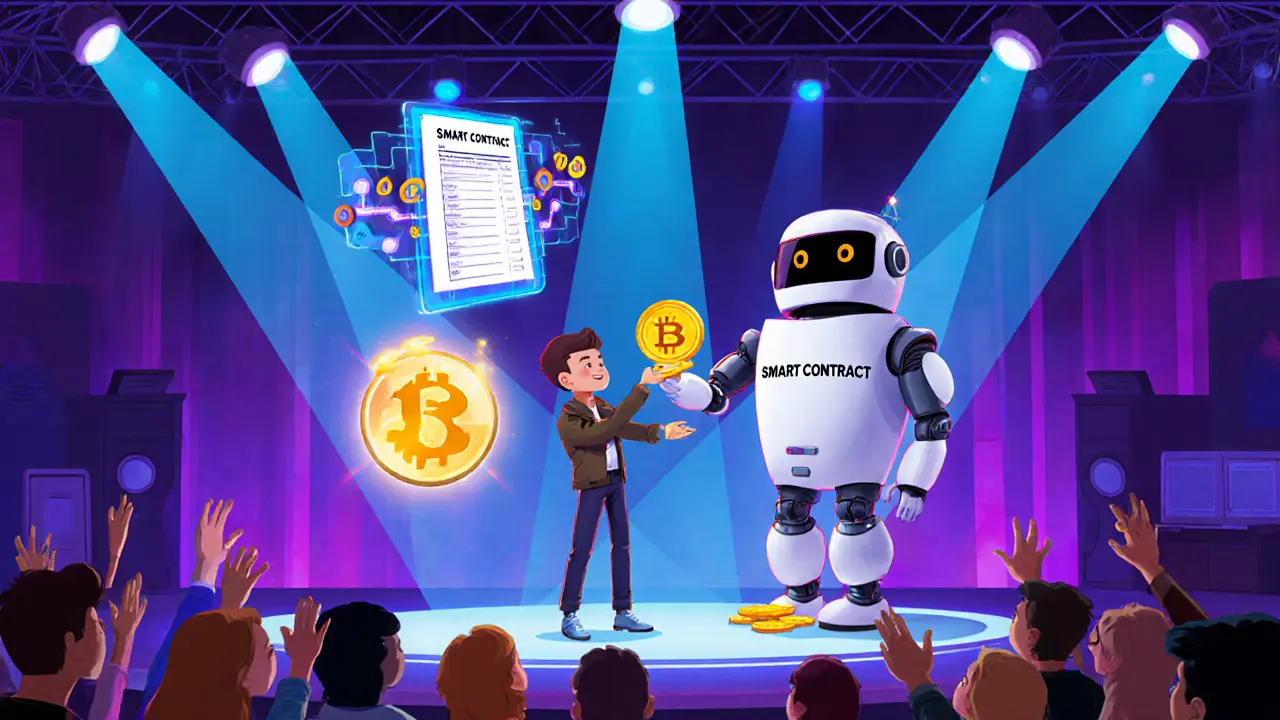
Why Artists Love Music NFTs
Traditional music distribution relies on record labels, streaming platforms, and aggregators that take a hefty cut of revenues. Music NFTs flip that model on its head:
- Direct Monetization: Artists can sell limited‑edition songs, album bundles, or even exclusive backstage passes directly to fans.
- Royalty on Resales: Smart contracts can embed a % royalty that automatically pays the creator every time the NFT is sold on a secondary market.
- Revenue‑Sharing Platforms: Services like Opulous let fans earn a share of future streaming royalties, aligning incentives between creator and collector.
These mechanisms give independent musicians a sustainable income stream without needing a label’s advance.
What Fans Get From Owning a Music NFT
Ownership isn’t just bragging rights. Here’s what collectors typically receive:
- Proof of ownership recorded on a public ledger.
- Access to exclusive content-early releases, behind‑the‑scenes videos, or private Discord channels.
- Potential financial upside if the artist’s fame grows and the NFT appreciates.
- Eligibility for royalty payouts or revenue‑share programs.
At the same time, the underlying track often remains streamable for anyone, so you can still share the music while holding the original digital asset.
Music NFTs vs. Traditional Music Consumption
| Feature | Music NFT | Streaming Subscription | Digital Download |
|---|---|---|---|
| Ownership | Verifiable token on blockchain | License to listen | File ownership, but no scarcity |
| Royalty to Artist | Automatic royalty on resale + possible revenue‑share | Per‑stream payout (often fractions of a cent) | One‑time payment, no future royalties |
| Collectibility | Limited editions, rarity, market speculation | Uniform access for all users | Identical copies for everyone |
| Access Method | Blockchain wallet & NFT marketplace | App or web player with account login | Download from store, store locally |
| Environmental Impact | Depends on blockchain (Ethereum moving to PoS reduces impact) | Data center streaming emissions | Minimal after download |
How to Buy Your First Music NFT
Getting started may feel like a tech labyrinth, but the steps are straightforward:
- Set up a cryptocurrency wallet that supports ERC‑721 or ERC‑1155 tokens (e.g., MetaMask, Trust Wallet).
- Buy a small amount of Ethereum or the native token of the blockchain you plan to use.
- Visit an NFT marketplace like OpenSea, Rarible, or a music‑focused platform such as Catalog or Zora.
- Search for the artist or track you like, review the token’s metadata, and click “Buy”.
- Confirm the transaction in your wallet-pay the price plus a gas fee.
- After the transaction confirms, the NFT appears in your wallet’s collection. You can now stream the track, claim any attached perks, or hold it as an investment.
Remember: gas fees can fluctuate, so watching network congestion can save you money.

Emerging Trends: Generative Music NFTs and Community Governance
Beyond simple song tokens, creators are experimenting with generative music NFTs. These pieces are created by on‑chain algorithms that combine random patterns and pre‑recorded samples each time the token is minted, resulting in a truly unique composition every time.
Some projects also embed governance tokens that let NFT owners vote on future releases, tour locations, or merch designs. This deeper fan involvement blurs the line between consumer and stakeholder.
Challenges and Criticisms
While the hype is real, several hurdles keep Music NFTs from mainstream adoption:
- Technical Barriers: Wallet setup and gas fees intimidate non‑crypto users.
- Environmental Concerns: Proof‑of‑Work blockchains consume a lot of energy, though major platforms are shifting to Proof‑of‑Stake.
- Market Volatility: Prices can swing wildly, making speculative buying risky.
- Legal Ambiguities: Copyright law and NFT ownership rights are still evolving, especially across jurisdictions.
Artists and platforms are addressing many of these issues-by offering gas‑less minting, carbon‑offset programs, and clearer licensing terms.
Future Outlook: Where Music NFTs Are Headed
Analysts agree that the next wave will focus on usability. Expect more mobile‑first wallets, integrated streaming experiences, and partnerships with traditional music services that let you unlock NFT‑exclusive content while listening on Spotify or Apple Music.
Regulatory clarity will also shape growth. If governments create clear frameworks for digital assets, both creators and fans will feel more secure.
Bottom line: Music NFTs have the potential to change how music is funded, distributed, and collected-especially for independent artists seeking a direct line to their audience.
Frequently Asked Questions
Do I actually own the song when I buy a Music NFT?
You own a unique token that proves you hold the original digital asset. The underlying audio file is still publicly streamable, but the NFT gives you verifiable ownership and any extra perks the creator attached.
Can I sell a Music NFT I bought?
Yes. Transfer it on a marketplace that supports the token’s blockchain. If the smart contract includes a royalty clause, the original artist will earn a percentage of the resale price automatically.
What blockchains are used for Music NFTs?
Ethereum is the most common, but alternatives like Polygon, Solana, Flow, and Tezos are gaining traction due to lower transaction fees and greener consensus mechanisms.
Do I need to be a crypto expert to enjoy Music NFTs?
Not necessarily. User‑friendly platforms now handle wallet creation and gas payment in the background. However, a basic understanding of wallets and private keys helps keep your assets safe.
How are royalties enforced on secondary sales?
The royalty amount is coded into the token’s smart contract. Every time the token changes hands, the contract automatically splits a percentage of the sale price and sends it to the artist’s wallet.
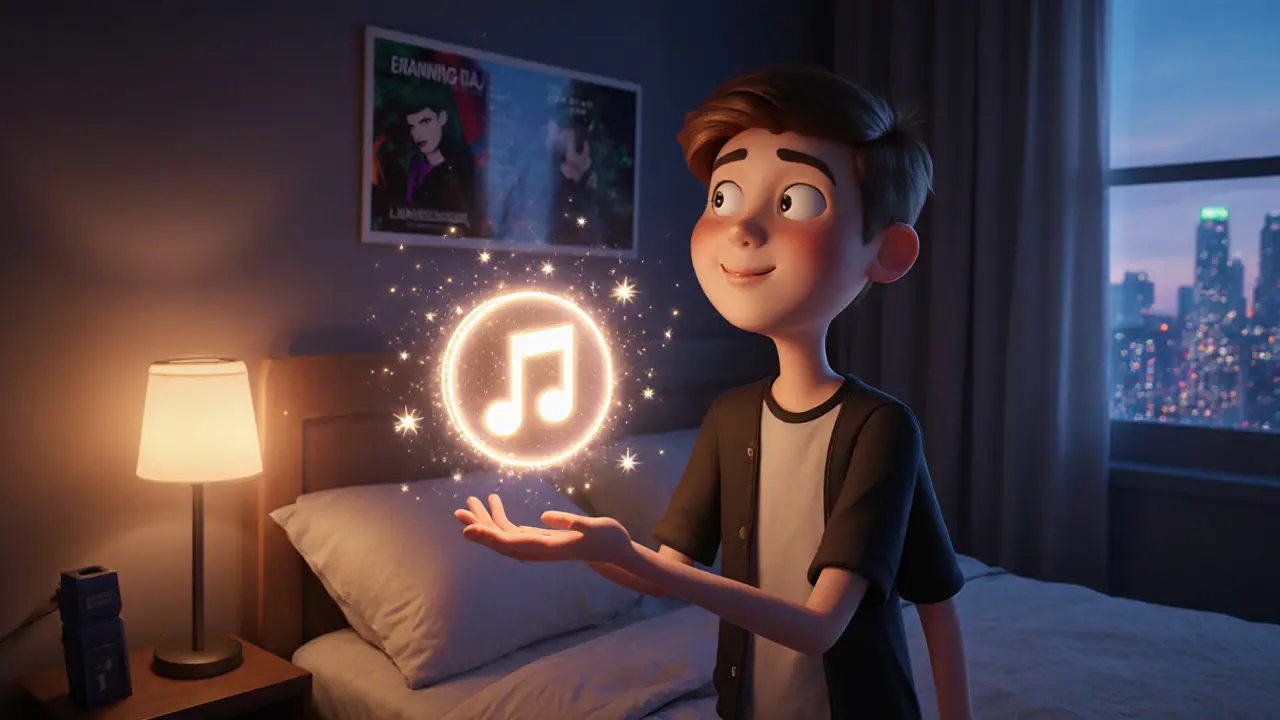
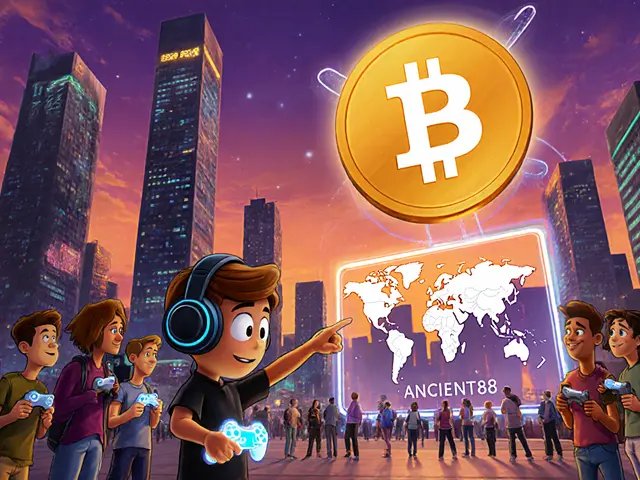
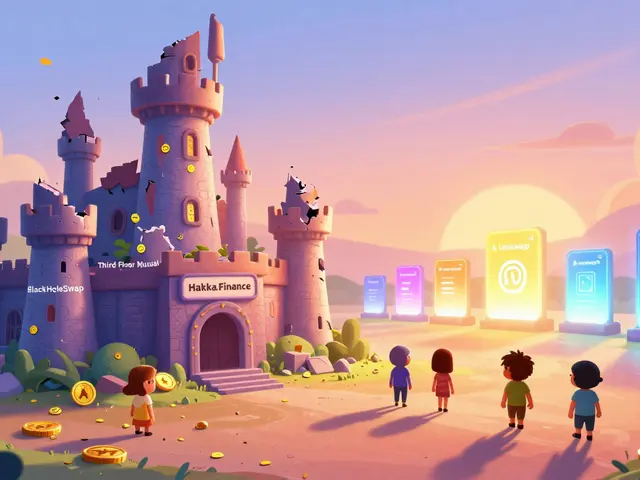
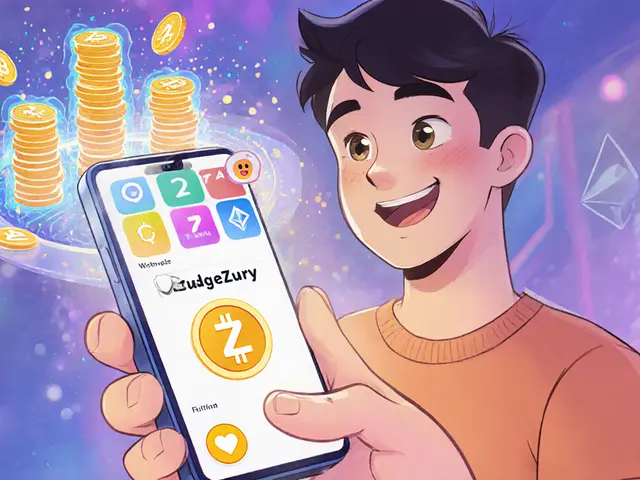
22 Comments
VEL MURUGAN
NFTs just turned music into another speculative asset, nothing more.
Russel Sayson
The ecosystem of music NFTs is not a mere novelty; it is a radical restructuring of value perception. Artists suddenly find themselves bargaining not just with listeners but with algorithmic marketplaces that mint, list, and trade digital assets on blockchains. The royalty smart‑contracts embed percentages that trigger on every resale, which promises lifelong income streams-if anyone ever resells them. Yet the reality is that most collectors treat these tokens like speculative baseball cards, flipping them for quick profit while ignoring the creative intent. This dynamic fuels a frenzy that mirrors the early days of crypto, complete with hype, FOMO, and inevitable pump‑and‑dump cycles. Moreover, the environmental cost of proof‑of‑work blockchains cannot be dismissed; each mint consumes kilowatt‑hours that dwarf the carbon footprint of a live concert. Switching to proof‑of‑stake mitigates this, but the industry is still dragging its feet. On the legal front, jurisdictional ambiguity surrounds who actually owns what when a token changes hands. Intellectual property law has yet to catch up with decentralized token standards, leaving artists vulnerable. The marketplaces often impose opaque fees, skimming a percentage before any royalty reaches the creator. Users must also grapple with the steep learning curve of wallets, private keys, and gas fees-all barriers for non‑tech‑savvy fans. Despite these challenges, we are witnessing a democratization of distribution; independent musicians can bypass traditional labels and reach global audiences directly. The trade‑off is a new form of gatekeeping via algorithmic curation and platform dominance. Ultimately, the promise of perpetual royalties is seductive, but only if the infrastructure evolves to protect both creators and collectors. In short, music NFTs are a double‑edged sword: empowerment wrapped in complexity and risk.
Isabelle Graf
It’s absurd how quickly people abandon ethical standards when a glossy token appears. The moral cost is hidden behind a shiny UI.
Shane Lunan
Honestly it feels like a fad. You mint, you list, you hope someone buys. If it doesn’t work you’re left with a digital file nobody wants.
Jeff Moric
For newcomers, think of NFTs as a new distribution channel rather than a guarantee of income. Building a fanbase still matters, and the token can be a rewarding perk for those who stick around.
Ken Lumberg
Artists should demand transparent royalty splits. The contracts must be auditable, not a black box that the platform can tweak.
Blue Delight Consultant
In theory, the smart contract automatically disburses royalties, however, due to gas cost fluctuation, singers may recieve less than expected.
Gautam Negi
One might argue that the entire premise is contrived, yet the financial incentives cannot be denied. The technology forces us to reconsider ownership concepts, even if it feels artificial at first.
Shauna Maher
Don’t be fooled – the “decentralized” platforms are just puppets for the same old industry elites. They’re gathering data while promising freedom.
Kyla MacLaren
Sounds cool but I’d rather listen to music than chase tokens.
Linda Campbell
From a jurisprudential perspective, the tokenization of audio works raises profound questions regarding the locus of legal title, which must be addressed before widespread adoption.
Jennifer Bursey
Leveraging blockchain as a revenue‑stream catalyst introduces a paradigm shift: think of royalty‑smart‑contracts as programmable escrow mechanisms, enhancing liquidity for creators while preserving provenance integrity.
Maureen Ruiz-Sundstrom
There’s a clear need for rigorous standards; otherwise we end up with fragmented ecosystems that dilute value for both artists and collectors.
Kevin Duffy
🚀 This could be a game‑changer for indie musicians! Keep pushing the boundaries and let’s see where it goes. 🎶
Jazmin Duthie
Oh great, another way for crypto bros to pretend they care about art.
Michael Grima
Sure, because the world really needed another digital collectable that will probably be worth nothing in five years.
Michael Bagryantsev
If you’re feeling lost, think of NFTs as a supplemental revenue tool. They’re not a replacement for touring or merch, but they can supplement an artist’s income stream.
Luke L
America’s music legacy should stay pure, not get polluted by foreign blockchain schemes.
Scott G
It is incumbent upon stakeholders to engage in rigorous dialogue regarding the regulatory frameworks that will govern tokenized artistic works.
Matthew Homewood
One could contemplate the metaphysical implications of ownership when a piece of music is represented by a cryptographic hash.
Bruce Safford
Hidden agendas abound: the “royalty calculators” are designed to obscure the fact that most of the profit goes to platform founders, not musicians.
Jordan Collins
While there are legitimate concerns about fee structures, it is also essential to recognize that transparent smart‑contract mechanisms can empower creators when properly implemented.